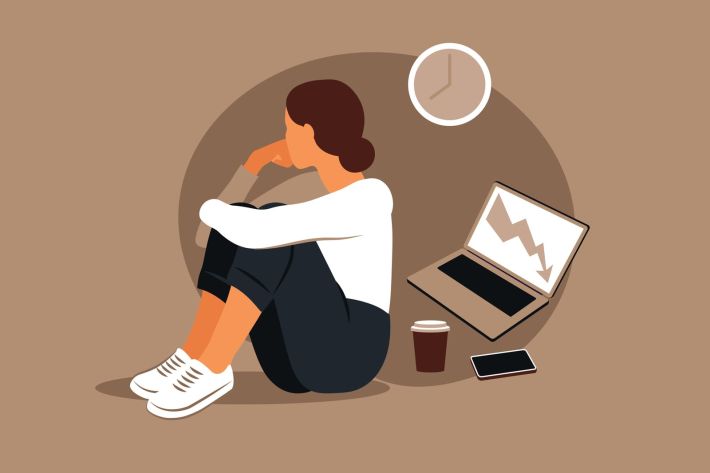- in Motivation by Tony
- |
- 1 comments
Procrastination And Getting Things Done

Procrastination is the act of delaying or postponing tasks or activities that need to be done. It is the tendency to put off important or demanding tasks in favour of more pleasurable or easier ones. It is a common trait many people struggle with, and research suggests that about 20% of individuals can be classified as procrastinators.
More...
What exactly causes people to procrastinate?

Procrastination can be described as the gap between intention and action. It occurs when you intend to do something, but for some reason, you continuously put it off.
It's important to note that procrastination involves actively delaying a task rather than simply letting it slide due to a long to-do list. Furthermore, procrastination often comes with negative emotions like anxiety and guilt.
Is procrastination laziness?
Procrastination is not necessarily being lazy. While it may seem like procrastinating is simply avoiding work or being lazy, there are usually underlying reasons why someone procrastinates.
Procrastination can result from different factors, such as fear of failure, lack of motivation or interest, feeling overwhelmed, perfectionism, or simply not knowing how to prioritise tasks effectively. It is meaningful to understand that procrastination is a behavioural pattern that can be overcome with conscious effort and strategies.
Among the synonyms of lazy is slothful. Sloth has a long history in the Catholic Church, beginning with the notion of acedia (sadness), which by the seventeenth century became the sin of sloth that we also commonly equate with procrastination.
It is essential not to label oneself or others as lazy solely based on procrastination. Instead, it is more productive to identify the underlying reasons for procrastination and work towards finding solutions to manage it better.
Here are some strategies to overcome procrastination:
1. Break tasks into smaller, more manageable steps.
2. Use time management techniques like the Pomodoro Technique, where you work for a set amount of time and then take a short break.
3. Create a schedule or to-do list to help prioritise tasks and hold yourself accountable.
4. Find motivation by setting specific goals and rewards for completing tasks.
5. Eliminate distractions and create a dedicated workspace for focused work.
Remember, procrastination is a common challenge many people face with apprehension, and does not define your worth or capabilities. With determination and the right strategies, overcoming procrastination and improving productivity is possible.
As previously stated, procrastination is a trait that exists within all of us to some extent. It is correlated to conscientiousness, our sense of orderliness and dutifulness. People who are low in conscientiousness are more likely to be procrastinators.

However, for most individuals, procrastination is not a significant problem. Often, we are too hard on ourselves for being procrastinators, when the underlying issue may be too many deadlines we face today.
For example, many students exhibit procrastination tendencies in the context of college. College life is loaded with constant deadlines, evaluations, and overwhelming tasks competing for their time. However, it's necessary to differentiate between essential task management and true procrastination.
Dr Pychyl, a procrastination expert, emphasises the need to make this distinction. While deferring tasks can be a productive task management strategy, true procrastination involves actively expending mental energy to delay a chore, often due to irrational reasons.
Procrastinators tend to rationalise their behaviour by blaming competing demands but fail to prioritise their activities effectively.
Procrastination and Mental Health
It is also worth noting that not all behaviours that resemble procrastination are actually procrastinating. Depressed individuals, for example, often experience a lack of energy and motivation, causing them to appear as though they are procrastinating.
However, in their case, procrastination is a symptom of their mental illness and must be approached differently.
Procrastination can often be linked to mental health issues, such as anxiety, depression, or attention deficit disorders. When we struggle with our mental health, it can affect our ability to focus, prioritise, and stay motivated, leading to procrastination.
One way to address this issue is by seeking professional help. A therapist or counsellor can help you identify underlying problems and develop strategies to manage your mental health. They can also provide guidance on how to improve productivity and overcome procrastination.
In addition to therapy, there are other steps you can take to tackle procrastination and support your mental health. First, it's important to break tasks into smaller, more manageable chunks. This makes them less overwhelming and easier to start. Prioritising tasks and setting realistic goals can also help you stay focused and motivated.

So before you beat yourself up for procrastinating, consider whether it is a pattern that extends to various areas of your life.
If not, then you may not be a procrastinator after all. Nevertheless, if you find yourself consistently delaying tasks and experiencing negative emotions, it is worth exploring strategies to overcome procrastination.
What are some common reasons for procrastination?

There are several common reasons why people procrastinate. One of the main reasons is poor time management skills. When we fail to prioritise our tasks and create an ideological schedule, it becomes easier to delay them.
Another common reason is fear of failure or perfectionism. Sometimes, the anxiety of not being able to meet expectations or produce perfect results can lead to avoiding the task altogether. Lack of motivation, feeling overwhelmed, or having low self-efficacy can also contribute to procrastination.
Are there any benefits to procrastination?
While procrastination is generally seen as an unfavourable habit, there can be some benefits to it in certain situations. For some people, procrastination can lead to increased creativity or innovation.
By putting off a task, the subconscious mind can work on it and develop new ideas or perspectives. However, it is necessary to note that these benefits are insufficient to justify chronic procrastination, as the negative impact on productivity and mental well-being far outweigh the potential benefits.
Conclusion

In conclusion, procrastination is a common trait that many people struggle with. While it is a natural part of human behaviour to some extent, it becomes problematic when it hinders our productivity and causes unnecessary stress. Procrastinators often remark that they lack the motivation necessary to act.
Setting specific and achievable goals and creating a well-structured and organised plan can provide a sense of direction and motivation.
Thereby, understanding the factors contributing to procrastination and differentiating it from the necessary job management, individuals can work towards overcoming this tendency and thus, improve their overall task and life management skills.


[…] are many reasons people procrastinate, from perfectionism, remaining in your comfort zone, or just being overwhelmed, but defeating […]